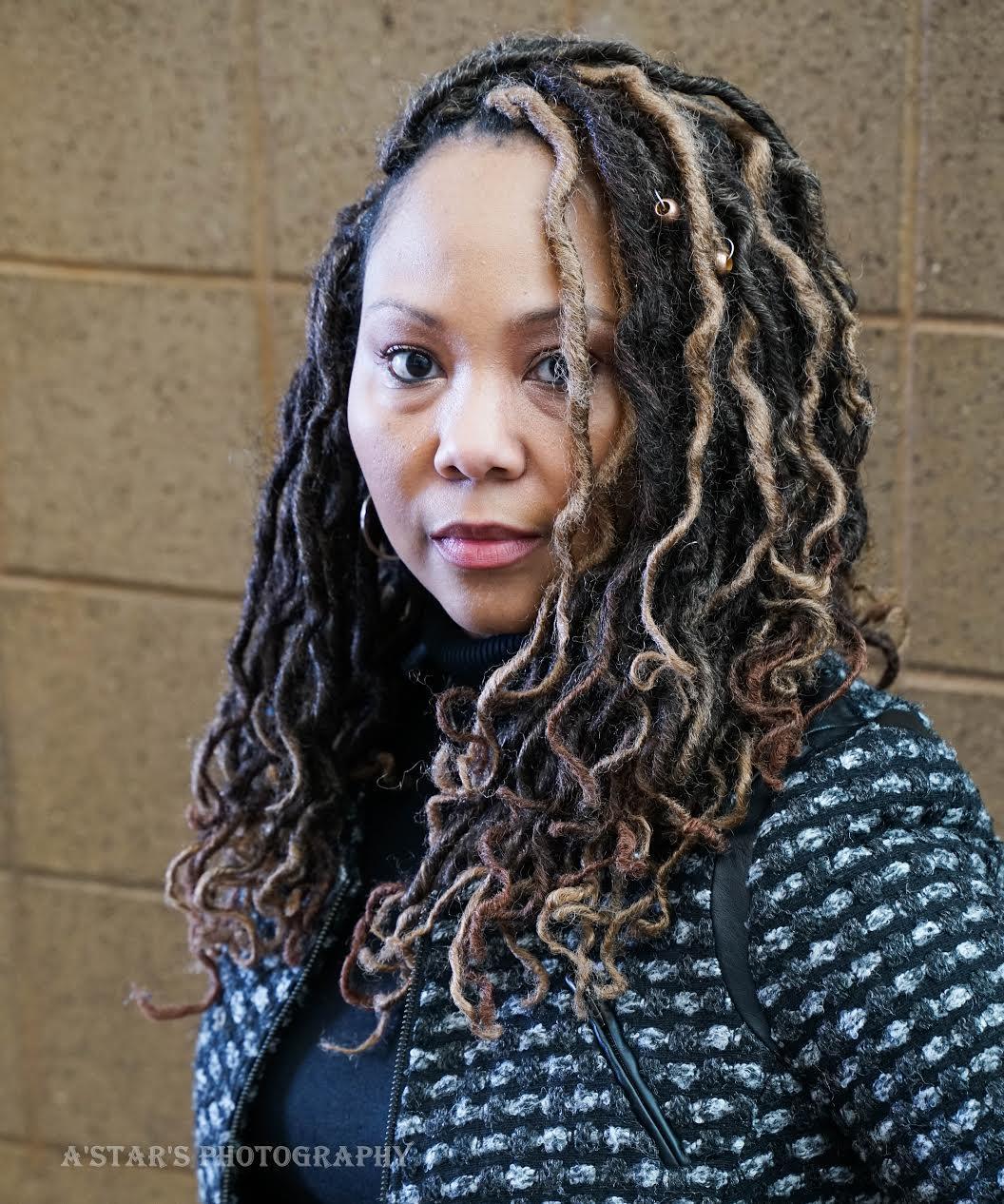The Take: Know Justice Know Peace,an internationally acclaimed podcast series, which offers a youth perspective on racial justice, was sparked by Kimberly Grayson, principal of the Dr. Martin Luther King Jr. Early College, Denver Public Schools, as an alternative to accompanying her students to a protest march after the murder of George Floyd.
Maybe the protest march was more perilous, but the podcast series has not been without risk. Following appearances on CNN, NPR and the Today show, death threats have been made repeatedly against Grayson and the girls, and Grayson, as she is called, has occasionally said, “Enough!”
But her students just reply, “We can’t stop, Grayson. We have to move on to liberation. You are our Harriet Tubman.”
In fact, Grayson says, death threats “motivate them to come harder. They are a movement by themselves. They are so humble. They are doing it because it’s right. They go to a school that is named after Dr. Martin Luther King Jr., and they are very aware of it.”
A phenomenon like this can catch fire in a heartbeat. Back in May 2019, the pre-pandemic days, Grayson visited the National Museum of African American History and Culture while on a Washington, D.C., trip with a group called Leverage Leadership, part of the Relay Graduate School of Education. Overwhelmed with emotion, she vowed to return with her students.
Within five months, she did just that. Floor after floor, her 17 students wept and consoled each other, as first they saw the horrific enslavement and persecution of their people and, gradually, their immense achievements, against all odds.
“We were broken and tried to heal each other,” she recalls, but back in the hotel came her personal moment of reckoning, when her students said, “You don’t do enough for Black history in our school, Grayson. You do it for other groups, but not for us.”
No question in her mind, the students were right. As a Black leader in a school that is only 32% Black, “It was hard for me to talk Black all the time, and I explained this to my students and told them I could make a change only if they stood behind me.”
The morning after their late-night return to Denver, the students stood in front of a district meeting at 7:30, and for 15 minutes, presented their case: since Black history is U.S. history, Black history should be embedded throughout the curriculum districtwide. So compelling was their argument that eventually Black history was embedded in every segment of the curriculum throughout Denver, even as the pandemic struck and compelled them to evacuate their school buildings.
From the beginning, Tamara Acevedo, the deputy superintendent of academics, who was present that day, stood up for Grayson and her students and has been standing up for them ever since. They have also had a special champion in Theo Shaw, executive director of The Culturally Sustaining Curriculum and Instruction Department. Grayson recalls only one parent who ever recoiled over the curriculum, finding it “too controversial,” but for the most part the community has been solid, including most of the DMLK faculty. “Out of 137 teachers, I would say 85 to 90 percent totally support this work.” The most dramatic case in point came when the nine members of the history department, all of them white, made their own trip to the African American Museum. Profoundly affected by the experience, they began revising their instructional plans for the year.
On Oct. 22, the Denver School Board passed a Know Justice Know Peace resolution written by Grayson and the young women from the podcast. It called for:
- A review of curriculum, course work and professional development in all content areas, to ensure that texts and resources are “transformational, humanizing, antiracist, and asset-based”;
- Use of feedback loops with teachers and students to determine gains made after each unit of study, in competency and cultural responsiveness;
- Changes that lift up the voices of systemically marginalized communities throughout the curriculum, and in the resources of school libraries; and
- Professional development for teachers and leaders on how to implement culturally responsive curricula with sensitivity, while ensuring the narratives of communities of color “transcend beyond traumatic events.”
Grayson considers herself a facilitator and the four podcasters the life force of The Take. (The boys gradually drifted away over the summer, she says, but the girls showed total resoluteness.) These students who propel The Take forward believe that its success springs from its tough, peer-oriented conversations about race and all the other related issues that people try to avoid. These conversations empower young people to have an impact on the world.
“An impact on the world.” That is Kimberly Grayson’s legacy from her father William Grayson Jr, a veteran of the U.S. Air Force. “Education is the Grayson legacy,” he would say Kimberly and her siblings were growing up in Wichita, “and you’re going to make a difference in the world.”
Her dad was simply known as “Grayson,” as his eldest daughter is known today. He and his wife Carmetta Lewallan Grayson, a social worker for the state of Kansas, programmed every moment of their daughters’ lives so that learning never ceased. “Monday was piano,” she recalls, and every subsequent day was dedicated to some other discipline, until Sunday, when they spent the entire day in church. In summer, they went to learning camps, so that by the time Kimberly Grayson was a junior, she was able to graduate. A few years later, she graduated from Newman University, where she would later earn her master’s degree in educational leadership.
“I was a teacher by the time I was 20,” she says. “What a work ethic in our family! My maternal grandmother and her two sisters were all registered nurses, role models to me. They were from a Texas sharecropper family, determined to be homeowners. They never stopped.”
Eight years ago, Grayson relocated to Denver to become principal of Dr. Martin Luther King Early College; her younger sister Kayla soon followed to become the principal at a school around the corner. “My sister and I lead our schools with our hearts,” she says. “We were raised that way.”
Her own daughter Kennadi Jackson, 11, is a student at DMLK and wants to be a teacher. Her niece Kaliah Yizar, 15, is a student there, too, and is a driving force in the podcast group. Grayson’s son Quincy Conway was at the school from 8th through 12th grade, and her sister's younger daughter Khloe is a sixth-grader there.
Today, emerging from the pandemic, Grayson says, “I feel I am crawling to the finish line. 2020 has been one of the hardest years of my life. It wasn’t only the pandemic, but all the racial stuff. I have had to ask myself many times “Do Black lives matter? Do they really matter?
“Like so many women, I wear so many hats: my Mom hat, my school leader hat, my teacher hat, my cook and housekeeper hat.” And with all these identities, she finds belonging to a union to be important. “Leadership is so isolating, so lonely and too often people think teachers are the only ones who should be organized, but principals should be, too. It allows you to help your staff stay well. And it allows you to be Mom or Dad at home.”
Her students, especially the young women of “The Take,” do not let her get discouraged. “Every time I do, they say, ‘Come on!’” Following the Today show, the girls were contacted by the authors Walter Milton and Joel Freeman for feedback on part of their textbook Black History 365, which is now being used in Grayson’s school. The 1,200-page book starts with the history of ancient Africa. Today, the podcast students are creating a national student advisory board for the authors.
In their next podcast, they are planning on interviewing the Denver and Aurora chiefs of police and are waiting for confirmations. After that, they hope to deal with the massive renewed effort toward voter suppression and the admissions dynamics of gifted and talented programs.
Kimberly Grayson’s awe is palpable when she reflects on the past year. She says, “I had to humble myself, and take accountability, and then commit to the change when my students challenged me after our trip to the museum.” She adds, “I did this because I was tired of hearing words like ‘Equity and Cultural Relevance’ at district gatherings while my students were suffering in a system not designed for them.”

